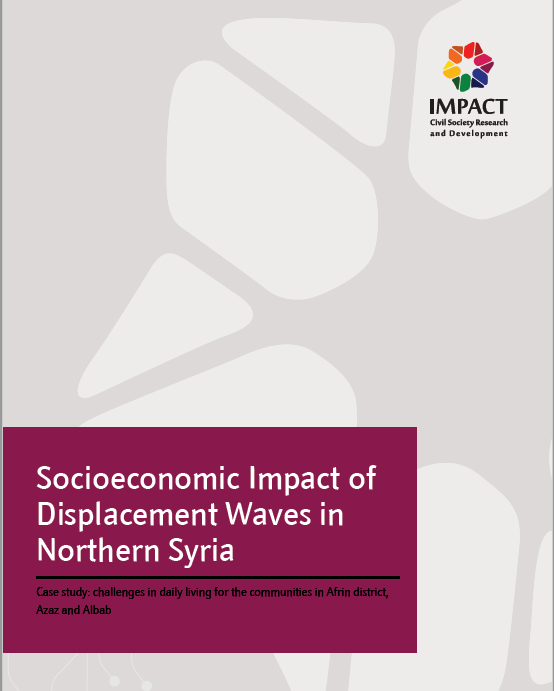After an offensive carried out by the Turkish army and Syrian militias in March 2018 in the Syrian city of Afrin, ethnic tensions in the district have gotten much worse.
These are some of the findings in a new report by research organization IMPACT, with the support of the Belgian NGO 11.11.11 and PAX.
Large parts of Northern Syria came under de facto Turkish control following two military campaigns: one, dubbed Euphrates Shield, targeted districts of Azaz and Al Bab; a second offensive, named Olive Branch, targeted the district of Afrin. The campaigns displaced local residents just at the moment when tens of thousands of people forcibly driven from their home elsewhere in Syria were arriving to settle in these areas. The report calls for urgent Turkish and European action to stabilize the rapidly deteriorating situation in the area.
Ethnic tensions in Afrin
The IMPACT report analyzes living conditions and relationships between internally displaced persons (IDPs) and host communities in the three communities: Azaz, Al Bab and Afrin.
The report shows that a clear distinction can be made between the situation in Azaz and Al Bab on one hand, and that in Afrin on the other hand. Afrin was already known for its high level of instability and ethnic tensions. These have been greatly exacerbated as a result of the Turkish intervention.
The IMPACT report shows that the IDPs re-settling in Afrin are given preferential treatment over local residents. The IDPs have more personal security, can practice their livelihoods, enjoy freedom of movement and can practice their own traditions.
Living in fear
Local residents in Afrin have also been the victims of discriminatory practices and serious human rights violations at the hands of the armed militias. The original residents of Afrin district feel alienated, and either distrust or are downright hostile towards IDPs. For their part, the IDPS also don’t feel at home their new host communities, hence the district’s social fabric is being torn apart.
Housing, land and property issues are of particular concern. Many original residents of Afrin live under the constant threat of eviction, expropriation, raids and lootings by local militias. Moreover, new IDPs are now residing in the “unoccupied” houses of displaced residents, whose property documents have been lost or even destroyed.
Recommenadtions
The report recommends urgent action to stabilize and improve the situation in Afrin. The European Union can take several measures on its own, in addition to asking the Turkish government to do the same, including allowing UN agencies and local and international NGOs more humanitarian access to Northwest Syria; creating a mechanism where local residents can submit complaints about abuses by local militias; creating a mechanism to address housing, land and property issues; additional investments by European donor countries in local peacebuilding projects.
Read the full rerpot Socioeconomic impacts of displacement waves in Northern Syria




